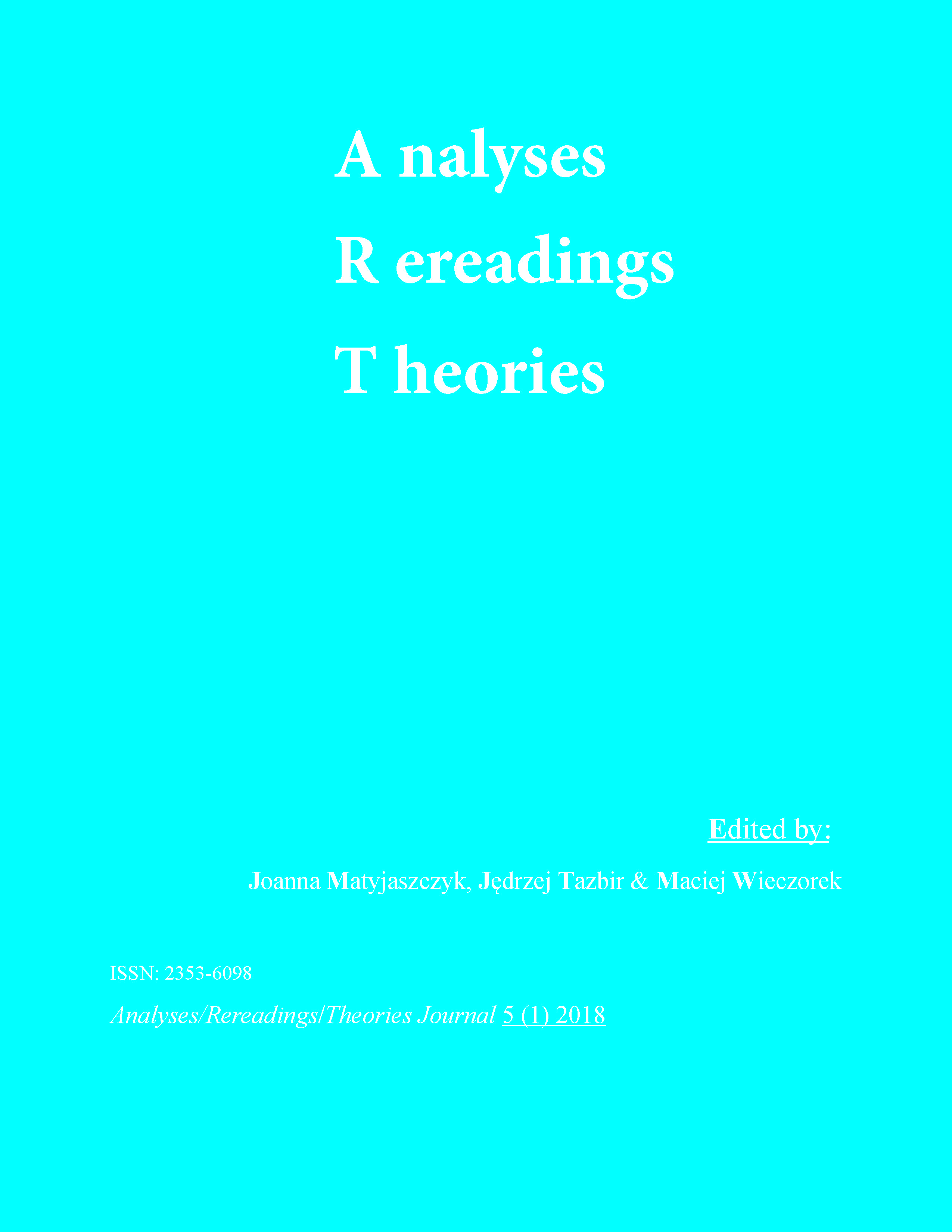Reality in the Margins, Pseudo-Reality in the Main Frame: The Posthuman in Steven Hall’s "The Raw Shark Texts"
Keywords:
posthumanism, pseudoreality, British fictionAbstract
I contend that, at its core, Stephen Hall’s The Raw Shark Texts is an allegory of reading that illustrates how composite realities exist in the increasingly electronically-dominated world of posthumanism. Hall succinctly identifies how words act upon readers intellectually and psychologically. Readers take the written words from the page and turn them into actual people, places, things, and events within their minds, bringing their own past narratives to create their versions of the text’s pseudoreality. However, the text’s main character, Eric, is disabled by his repeated episodes of complete amnesia – his reality is constantly being erased and rewritten, just like computer memory, leaving Eric with no past narrative to inform his present and future. Hall, very much aware of the conflict between reality and pseudoreality, conflates the worlds of written and digital text, and of human and computer memory in ways that both celebrate their coexistence and warn of one’s potential to eliminate the other. Thus, the allegory of reading exemplifies the potential destruction of reading and the end of electronic posthumanism. As digital text and the mainframe threaten to destroy the act of reading in the twenty-first century, the death of the reader looms large.
References
Boxall, Peter. “Science, Technology, and the Posthuman.” Cambridge Companion to British Fiction Since 1945. Ed. David James. Cambridge Companions Online. 127–42. cambridge.org. Web. 2 Apr. 2017.
Google Scholar
Brillenburg-Wurth, Kiene. “Posthumanities and Post-Textualities: Reading The Raw Shark Texts and Woman’s World.” Comparative Literature 63.2 (2011): 119–41.
Google Scholar
“Erwin Schrödinger: Publications.” An Exhibition from the Austrian Central Library for Physics. Ed. Auguste Dick, Gabriele Kerber, Wolfgang Kerber, and Karl von Meyenn. 1999. zbp. univie.ac.at/schrodinger/euebersicht.htm. Web. 15 Jan. 2018.
Google Scholar
Guenther, Shawna. “The Impossible Disconnected City of Paper in Steven Hall’s The Raw Shark Texts.” Presented at (Im)possible Cities Urban Literary Studies Conference, Finland, 2017.
Google Scholar
Hall, Steven. The Raw Shark Texts. Toronto: Harper, 2007.
Google Scholar
Haney, William S. Cyberculture, Cyborgs and Science Fiction: Consciousness and the Posthuman. Amsterdam: Rodopi, 2006.
Google Scholar
Hayles, Katherine N. “Afterword: The Human in the Posthuman.” Cultural Critique 53 (2003): 134–37.
Google Scholar
Hayles, Katherine N. “Computing the Human.” Theory, Culture & Society 22.1 (2005): 131–51.
Google Scholar
Hayles, Katherine N. “Material Entanglements: Steven Hall’s The Raw Shark Texts as Slipstream Novel.” Science Fiction Studies 33.1 (2011): 115–33.
Google Scholar
Hayles, Katherine N. and James J. Pullizzi. “Narrating Consciousness: Language, Media and Embodiment.” History of the Human Sciences 23.3 (2010): 131–48.
Google Scholar
Lea, Daniel. “The Anxieties of Authenticity in Post-2000 British Fiction.” Modern Fiction Studies 58.3 (2012): 459–76.
Google Scholar
“Mycroft Holmes.” Sherlockology: The Ultimate Guide for Any BBC Sherlock Fan. sherlockology. com. Web. 13 Jan. 2018.
Google Scholar
Panko, Julia. “‘Memory Pressed Flat into Text’: The Importance of Print in Steven Hall’s The Raw Shark Texts.” Contemporary Literature 52.2 (2011): 264–97.
Google Scholar
Pethes, Nicolas. “Terminal Men: Biotechnological Experimentation and the Reshaping of ‘the Human’ in Medical Thrillers.” New Literary History 36.2 (2005): 161–85.
Google Scholar
Tanderup, Sara. “Intermedial Strategies and Memory in Contemporary Novels.” CLCWeb: Comparative Literature and Culture 16.5 (2014): 1–10. Web. 9 Apr. 2017.
Google Scholar
The Terminator. Dir. James Cameron. Orion. 1984
Google Scholar
The Wizard of Oz. Dir. Victor Fleming. MGM. 1939.
Google Scholar
Downloads
Published
How to Cite
Issue
Section
License

This work is licensed under a Creative Commons Attribution-NonCommercial-NoDerivatives 4.0 International License.





